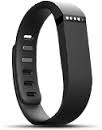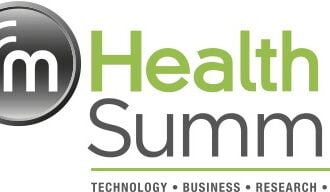In January of 2012, Wikipedia went dark for a full 24 hours. During that 24 hour period visitors to the site saw the message “Imagine a World Without Free Knowledge.” The site was not taken down by hackers. Instead, Wikipedia was participating in an Internet-wide protest against the Stop Online Piracy Act which was under consideration in the House and the Protect Intellectual Property Act which was simultaneously under consideration in the Senate.
In January of 2012, Wikipedia went dark for a full 24 hours. During that 24 hour period visitors to the site saw the message “Imagine a World Without Free Knowledge.” The site was not taken down by hackers. Instead, Wikipedia was participating in an Internet-wide protest against the Stop Online Piracy Act which was under consideration in the House and the Protect Intellectual Property Act which was simultaneously under consideration in the Senate.
Wikipedia’s absence sent shock waves through the Internet and prompted questions about what the Web would be like without the site. It turns out that one widely-cited infographic holds the answer. Without Wikipedia, we would have nearly 4 million fewer informative articles on everything from Azeroth to Zinc to aid our ever-growing quest for knowledge. In addition, the online health landscape would be a very different place.
Although Wikipedia is now part of the Web’s bedrock, many still question the accuracy of the site. However, the masses have spoken and Wikipedia continues to be a major information resource, including in health and medicine categories. The Journal of Medical Internet Research (JMIR) pulbished an article in 2011 titled Wikipedia: A Key Tool For Global Health Promotion. The abstract of the article explains that the full potential of Wikipedia’s possibilities are underestimated in terms of using the site as a tool in global health promotition. In the aritcle JMIR invites the medical community “to join in editing Wikipedia, with the goal of providing people with free access to reliable, understandable, and up-to-date health information.”
In our work via digihealth pulse (the Digital Health Consumer Tracking Study) we’ve witnessed the power of Wikipedia in health first-hand . Wikipedia’s popularity as a health resource is only one reason the site is so potent. A more important factor has to do with how people perceive health and medical content on the site.
Wikipedia is Powerful Because People Believe it is a Credible Health Resource
Recently, we conducted a two-part analysis of data collected during Wave 1 of the digihealth pulse study.
- Part 1: Determine how often people encountered health content in one of our 39 health topics on Wikipedia
- Part 2: Get a sense of how credible people believe Wikipedia content to be within these health topics (we asked them to rate content via a five-point Credibility Score: 1 = low credibility, 5 = high credibility)
What we found was very interesting. First, study participants read health content on the site more than 460 times between late September to early December 2012 (across the 39 health topics that we’re studying). In addition, on average, health information encountered on Wikipedia received a Credibility Score of 3.29.
This Credibility Score suggests two things:
- People view Wikipedia as a relatively credible source of health information — at least among the health topics we are studying currently which include heart disease, breast cancer, flu, food, and more.
- Study participants are not rating Wikipedia content uncritically. It appears that people are making careful decision on the reliability and credibility of health content on the site.
We are continuing our study of Wikipedia’s impact on health perceptions (and behaviors) and will have more to say about site’s impact in the future. However, based on what we’ve seen so far, part of the reason Wikipedia remains a silent giant of the health Web is that it is viewed as a reliable source of information.







